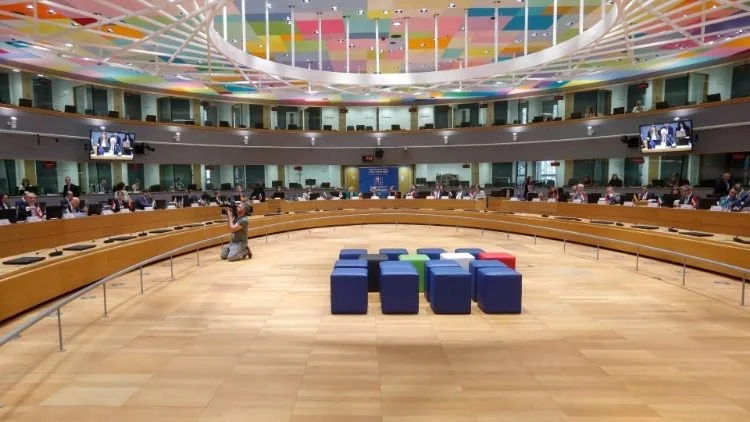CAFOD calls on Brussels Conference to renew commitment to Syria
As a two-day conference on “Supporting the future of Syria and the region” continues in Brussels Tuesday, the Catholic Agency for Overseas Development in England and Wales, CAFOD, is calling on donor governments to pledge adequate funds to address both the immediate and longer-term needs of the people inside Syria and in neighbouring countries.
By Lydia O’Kane
The 6th Brussels Conference on “Supporting the future of Syria and the region” is underway in the Belgian capital.
Attending the gathering are governments, international organisations and agencies, and regional organisations and civil society groups.
The aim of the conference, which runs from 9-10 May, is to continue supporting the Syrian people in Syria and the region, and “mobilise the international community in support of a comprehensive and credible political solution to the Syria conflict.”
The event is also addressing the most critical humanitarian and resilience issues affecting Syrians and communities hosting refugees from Syria, both inside the country and in the region.
The conference kicked off on Monday with the “Day of Dialogue”, providing a platform for discussion with civil society and NGOs active in Syria and the region.
A ministerial meeting is taking place on Tuesday to address key political, humanitarian, and regional development aspects of the Syrian crisis.
Political commitments and pledges will also be made.
The European Union, which is hosting the event, says it “will continue mobilising all the tools at its disposal to support the Syrian people to finally reach a negotiated political solution and help create the conditions for a brighter future for all Syrians.”
Last year, the international community pledged €5.3 billion in aid to Syria and the nations hosting refugees.
Syria has been immersed in a civil war since 2011 which has left millions of people forcibly displaced both within the country and beyond its borders.
Through its extensive community network, the Catholic Agency for Overseas Development in England and Wales, CAFOD, is providing aid in some of the worst-hit and most inaccessible areas in the country.
The suffering continues in Syria
The agency’s Head of Humanitarian Policy, Howard Mollett, said, “The Brussels conference offers the chance for the British government and other donors to renew their commitment to the Syrian people.”
“Whilst the media spotlight has moved on to other crises, notably Ukraine, actually the suffering in Syria continues.”
Impact of Ukraine crisis
He went on to say that the situation in the country is being compounded by wider global impacts, such as the crisis playing out in Ukraine.
“We’re seeing food, fuel, and other prices skyrocketing both inside Syria and in countries neighbouring Syria,” he said.
Giving an example, Mr Mollet noted that this year alone, the price of an average food basket has risen by 90%.
He also drew attention to the fact that a number of major governments that had been funding the aid response in Syria have cut their aid budget.
Aid budgets
CAFOD is calling on the British government to reverse the cuts to its Syria aid budget - a move, it says, that “has led to thousands of Syrian children being unable to go to school - exposing them to increased risks of early and forced marriage.”
It also said it should take more deliberate steps to ensure UK aid funds reach local Syrian organisations, who understand best their communities and how to get aid to where it is needed.
“We’re seeing this perfect storm of the economic consequences of the Ukraine crisis, the impacts of COVID-19, the impacts of aid cuts. We mustn’t also forget that Syria is under sanctions, Mr Mollet said.
Political ramifications
According to CAFOD’s Head of Humanitarian Policy, as the conflict continues in Ukraine, there are also the political ramifications of the crisis in Ukraine, and “the potential blowback for vulnerable people in Syria.”
For example, he said, “the UN Security Council has established a resolution that allows aid to go cross border from Turkey, Iraq and other locations into parts of Syria that can’t be reached from government-controlled parts of the country, and because the government controls and denies assistance to be delivered to people living in those other parts of Syria.” Russia, he pointed out, is on the UN Security Council, and as the next vote comes around in July to renew the resolution, there are real concerns as to whether or not an agreement will be reached…
This report was originally published on Vatican News website. Please click here to read the full text.

